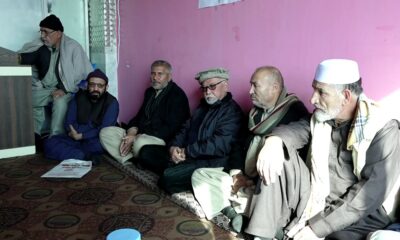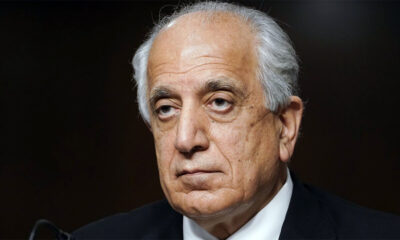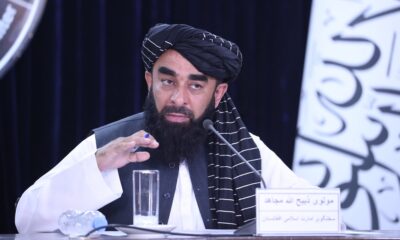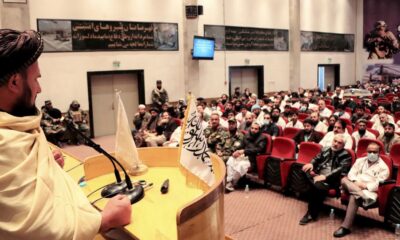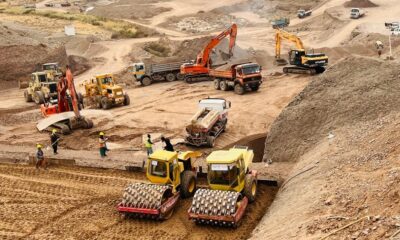Afghanistan has the potential to become an electricity exporter: Deputy PM
Meanwhile, the head of Da Afghanistan Breshna Sherkat (DABS), Abdul Bari Omar, said that Afghanistan has the capacity for investment of up to $5 billion in the electricity sector and they are trying to provide more facilities to the people.
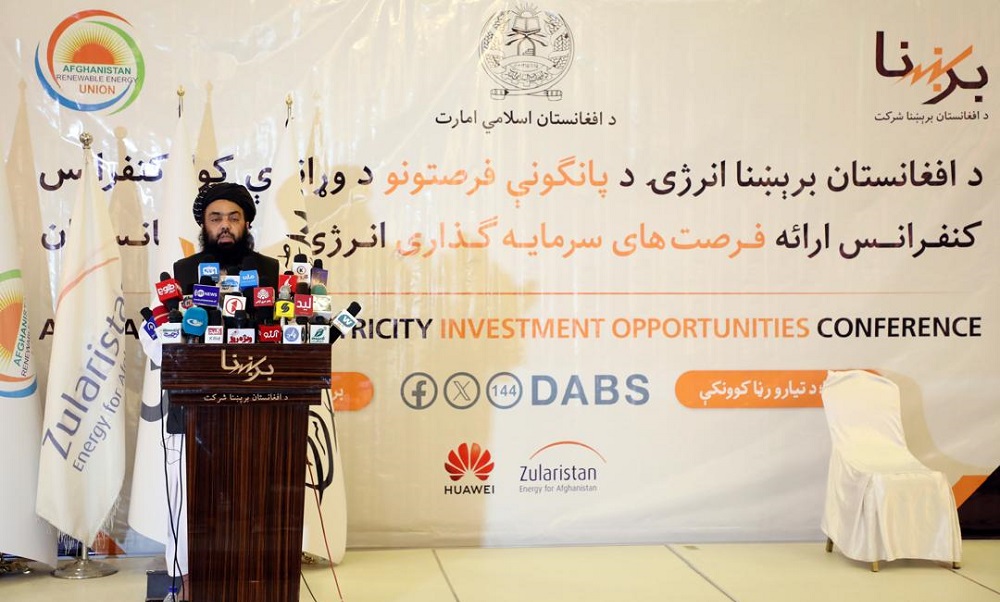
Mawlawi Abdul Kabir, deputy prime minister for political affairs, said on Monday Afghanistan had the potential to become an electricity exporter, but it still imports its power.
He made the remarks at a conference on Afghanistan's electricity investment opportunities.
"Afghanistan has great potential to generate electricity," he said. “This conference will introduce opportunities for domestic and foreign investors. I hope this conference will prove to be important for attracting investment in the energy sector. For a war-torn country like Afghanistan, it is important to use its resources to strengthen the economy, produce energy and become self-sufficient. Afghanistan can become an energy producer and exporter in the region by using its resources.”
Meanwhile, the head of Da Afghanistan Breshna Sherkat (DABS), Abdul Bari Omar, said that Afghanistan has the capacity for investment of up to $5 billion in the electricity sector and they are trying to provide more facilities to the people.
He called on the international community not to politicize the issue of electricity and continue its assistance in the fight against climate change.
"There are many problems in the grids, substations, junctions and transmission lines," he said. “People should know that we did not inherit a system from the previous administration that is sound. The transmission line from Tajikistan and Uzbekistan is very weak, not having enough capacity to transmit the required electricity. Our technical waste of electricity is 13 percent. The Islamic Emirate has reduced technical losses by up to five percent.”
According to Omar, strongmen and politicians of the former government owe 2 billion Afghanis to DABS.
Meanwhile, Acting Minister of Industry and Commerce Nooruddin Azizi said that manufacturing companies are suffering from a shortage of electricity.
"In the near future, we will have 800 companies requesting land in the capital," Azizi said. “We need 50 to 100 MW of electricity for each company.”
Acting Minister of Information and Culture Khairullah Khairkhah also highlighted the role of the media in reflecting the country's prosperity and progress.
At the conference, DABS officials said that in addition to repairing the grids, they need to repair the electricity meters, and more than 500,000 meters are still not included in the system.

Saar
Tahawol: National dialogue for lasting stability in Afghanistan discussed
Saar
Saar: Afghans’ need for humanitarian aid discussed
Latest News
G7 envoys urge national dialogue for lasting stability in Afghanistan

Special Representatives of the Group of Seven (G7), including the European Union, have emphasized the importance of a national dialogue for achieving long-term stability in Afghanistan.
Following a meeting on Afghanistan in Geneva, Switzerland, G7 special envoys issued a joint statement calling for the restoration of women's rights and urging the Islamic Emirate to fight terrorism.
The statement reads: "Achieving sustainable peace and stability requires credible governance that represents all segments of Afghan society."
The representatives also expressed concern over the IEA’s decision to ban girls from attending medical institutes, warning that it will have devastating consequences for the citizens, particularly mothers and their infants.
The statement described this ban as unacceptable and called on the Afghan authorities to lift it immediately.
Earlier, countries and international organizations had called for the removal of restrictions on the education and employment of women and girls, emphasizing the need for a national dialogue.
In response to these concerns, IEA has repeatedly stated that it will not allow interference in the internal affairs of the country.
The G7 special envoys also expressed their concern about the recent terrorist attacks in Kabul and the surrounding region, warning that terrorism remains a serious threat to Afghanistan's security. They confirmed the actions of the IEA against Daesh but stressed the need for more decisive measures.
-

 Sport5 days ago
Sport5 days agoATN once again seals deal to broadcast upcoming IPL across Afghanistan
-

 Regional5 days ago
Regional5 days agoBomb kills chief of Russian nuclear protection forces in Moscow
-

 Sport4 days ago
Sport4 days agoLanka T10: All three matches abandoned due to rain
-

 World5 days ago
World5 days agoAt least 100,000 bodies in Syrian mass grave, US advocacy group head says
-

 Latest News4 days ago
Latest News4 days agoIndia hoping to import coal and marble from Afghanistan
-

 Latest News5 days ago
Latest News5 days agoTrump says he would have pulled out of Afghanistan with ‘dignity and strength’
-

 Sport4 days ago
Sport4 days agoZimbabwe’s opening ODI against Afghanistan abandoned
-

 Latest News5 days ago
Latest News5 days agoFuel prices rise in Herat as winter approaches

